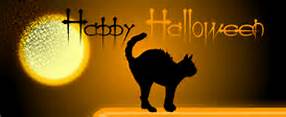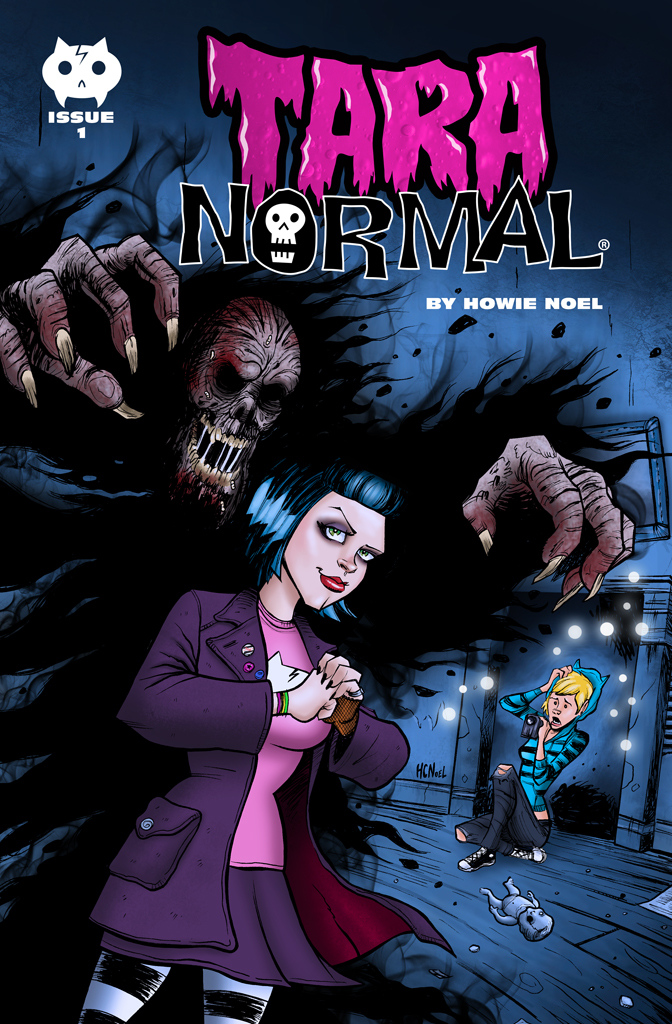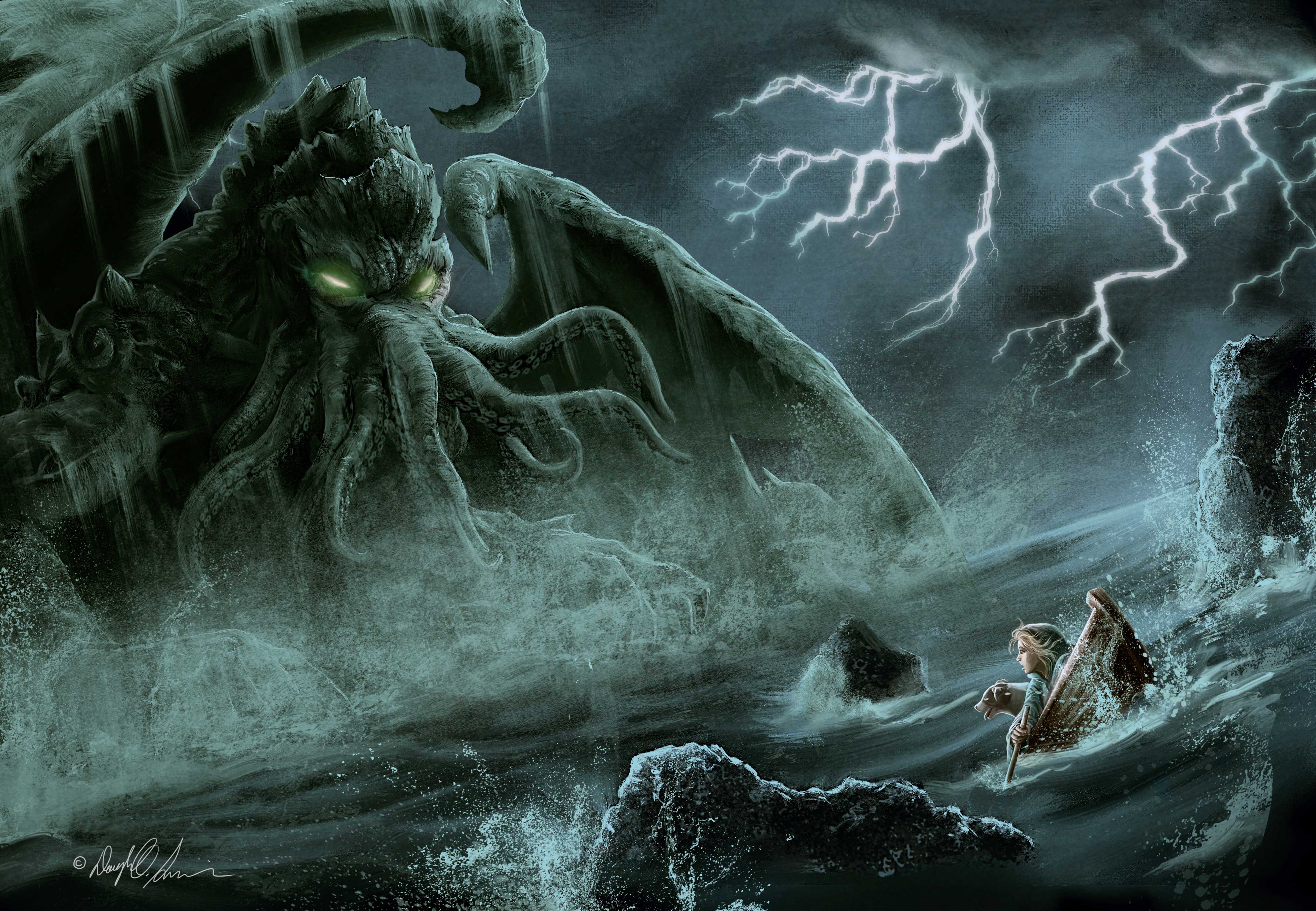
Barely released in 2007 to confusion from critics and vitriol from fans of H.P. Lovecraft’s Cthulhu Mythos, it’s safe to say Dan Gildark and Grant Cogswell’s Cthulhu is an oddity. It’s not a great movie, either: the script was directed/written by first-timers (Gildark’s background was theater Cogswell’s was poetry and activism), making it choppy, while most of the performances (especially Tori Spelling, the production’s biggest name) are campy. Many subplots vanish or abruptly end as protagonist Russell Marsh (played by a terrifically unhinged Jason Cottle) comes back to his hometown after his mother’s death, only to be drawn into a mystery involving a cult run by his father. Much run time is devoted to Russell getting acquainted with friends and family he had left behind, a slow burn that works until halfway through and the movie realizes it needs to move the plot, which leads to left-field moments like the town Sheriff arresting Russell before announcing his previously unexpressed vendetta against the family. Gildark and Cogswell even dismantle their movie in the DVD commentary, picking apart plotting and technical mistakes they made–refreshingly honest these days, when even the most lukewarm turd of a movie comes with self-congratulatory director commentaries that seem switched with those for a genuine classic–offering pointers to other newcomer filmmakers amounting to “don’t do what we did.”
What makes Cthulhu‘s failures intriguing is that, despite the claims of angry Lovecraft fans, it is the best direct adaptation of the horror author’s work (Alien and John Carpenter’s The Thing duke it out for best Lovecraftian movie). Where previous attempts, mainly the Brian Yuzna/Stuart Gordon team (Dagon and the Re-Animator series), were jokey B-movies drinking from diluted Lovecraft offered by August Derleth–who retconned the series’ monsters and aliens into traditional ‘good vs. evil’ Howard Phillips had rejected–Gildark and Cogswell capture Lovecraft’s nihilistic, cosmic dread, primarily adapting The Shadow Over Innsmouth. Opening with ominous news reports of dying polar bears, war in the Middle East, and Inuit eco-terrorists, frequently casting nervous glances to the Pacific Ocean (the cinematography’s beautiful in those shots), and following Russell down a pitch black cave, this is a movie about those things we don’t admit to ourselves. Russell ran away because he’s a homosexual (many Lovecraft fanboys raged about this for typically dumb reasons), and often sees the baffling reactions of the townspeople as homophobia, an antagonism that rises to the surface when the elder Marsh (Dennis Kleinsmith) rudely comments about it, leading to a dinner table argument between father and son. His sister (Cara Buono) tries but fails to reconcile the two.
Cottle’s portrayal of Russell is often tired, bewildered, and angry, denying his heritage–trying to finalize an auction of his mother’s house so he can leave town–yet embracing his nature (pursuing a relationship with an old friend/lover, played by Scott Green, and telling his father “Everything I am came from you,” even shaving his head like the old man’s). Most of his frustration seems to be from coming back and dealing with this part of himself he chose to suppress, even though it’s as much who he is as being gay; this conflict is what comes to a head in the climax, where Russell is confronted with a far more horrible truth (which he still denies, babbling “I don’t know you…I don’t know any of you!”). Gildark and Cogswell play on Lovecraft’s themes of heritage and decay–the author always feared his father’s mental illness passed to him, often writing about figures doomed by genetics to become literal and figurative monsters–when relating to Russell’s inability to escape the town and the role his father wishes him to play, a metaphor as much for neo-con attitudes towards homosexuality (destruction of the self) as it is about our complicity in environmental degradation (hence, the Inuit newscast).
This marks Cthulhu as an overtly political work. Cthulhu itself is never seen, and other hellspawn are only glimpsed in quick shots at the corner of the screen–another point of irritation for fanboys–but instead they are felt. Every doom-saturated scene, from Russell’s prophetic dreams intersecting with reality (a cudgel leaps from one to the other) to camcorder shots of warfare to even the ludicrous attempts by Spelling to seduce (and later, rape) Russell seems guided by forces beyond its human players. This plays out over the backdrop of the escalating War on Terror and the decline of the American economy, reflecting the Great Depression of Lovecraft’s time, as if the demigod’s very presence has cracked it. Gildark and Cogswell, in modernizing Cthulhu, essentially damn Western civilization to crumble under its own hubris. It’s a shame this movie was so marginalized. As badly they flubbed on the way to that endpoint, movies should be so fearlessly ambitious and honest as this.




















